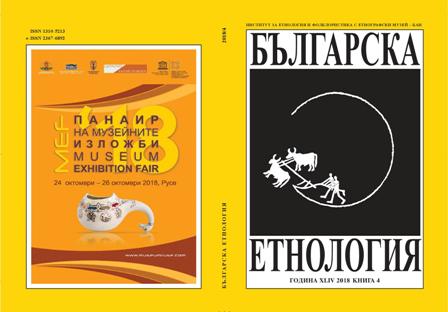Храната и храненето в средновековните славянски пенитенциални текстове
Food and Nutrition in the Medieval Slavic Penitentials
Author(s): Desislava NaydenovaSubject(s): Christian Theology and Religion, Anthropology, Local History / Microhistory, 6th to 12th Centuries, Biblical studies, Eastern Orthodoxy, History of Religion
Published by: Институт за етнология и фолклористика с Етнографски музей при БАН
Keywords: food; nutrition; sin; repentance; purity; taboo; Middle Ages; medieval Bulgaria; Byzantium; Penitentials; manuscripts; Nomocanon; Pseudo-Zonara
Summary/Abstract: The article examines the evidence on food and nutrition found in the Slavic penitentials. Unlike the law texts in the Western historical tradition, the Slavic mediaeval law texts are poorly researched and (rarely) used as a source of information about the Bulgarian history and culture. The manuscript tradition of the Slavic penitentials (the volume of manuscripts, their frequency, editorial interventions) shows that for a long period of time (almost until the 18th century) they have remained among the main texts used by the priests during the sacraments of confession and repentance. Therefore, they can be a source of important information about the everyday life of the Bulgarians. An emphasis is put on the diet, the ban on certain foods, the role of food and nutrition in relation to the people following other traditions such as heretics, Jews, Armenians. It is argued that penitentials reflect a kind of duality. On the one hand, they may be regarded as attesting the everyday lifestyle – the Christian calendar, the observance of certain hygienic norms, while, on the other hand, they reflect, to the highest degree, the concepts of purity and impurity which are characteristic for the “primitive” cultures and the blurring of which might have led to supernatural punishment.
Journal: Българска етнология
- Issue Year: 2018
- Issue No: 4
- Page Range: 400-420
- Page Count: 20
- Language: Bulgarian

